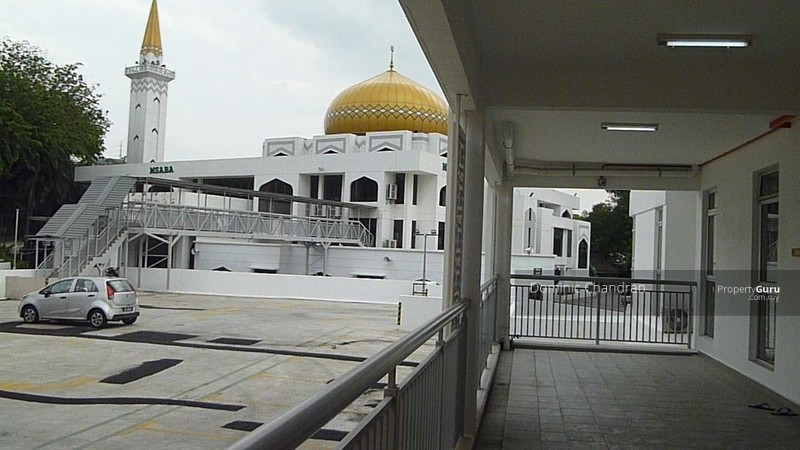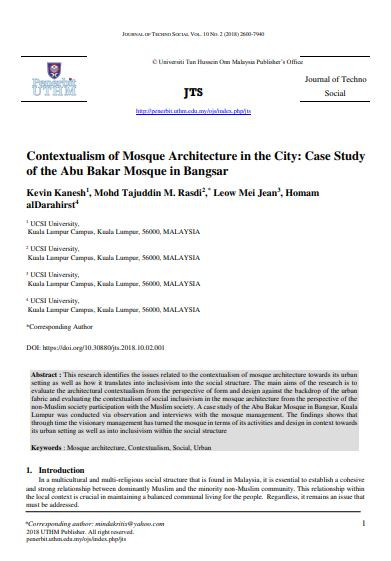

This research identifies the issues related to the contextualism of mosque architecture towards its urban setting as well as how it translates into inclusivism into the social structure. The main aims of the research is to evaluate the architectural contextualism from the perspective of form and design against the backdrop of the urban fabric and evaluating the contextualism of social inclusivism in the mosque architecture from the perspective of the non-Muslim society participation with the Muslim society. A case study of the Abu Bakar Mosque in Bangsar, Kuala Lumpur was conducted via observation and interviews with the mosque management. The findings shows that through time the visionary management has turned the mosque in terms of its activities and design in context towards its urban setting as well as into inclusivism within the social structure
Kanesh, Kevin, Mohd Tajuddin Mohd Rasdi, Leow Mei Jean, and Homam Al-Darahirst. “Contextualism of mosque architecture in the city: Case study of the Abu Bakar Mosque in Bangsar.” Journal of Techno-Social 10, no. 2 (2018).
I agree to the terms outlined below:
You agree to upload and assign Mosqpedia Database the rights to use the content worldwide and in perpetuity across all current and future media platforms. Mosqpedia Database may edit, copy, adapt and translate your contribution.
The content will be distributed under the Creative Commons Attribution-Deed – Attribution-NonCommercial-NoDerivatives 4.0 International – Creative Commons
All data will be stored in line with data protection regulations.